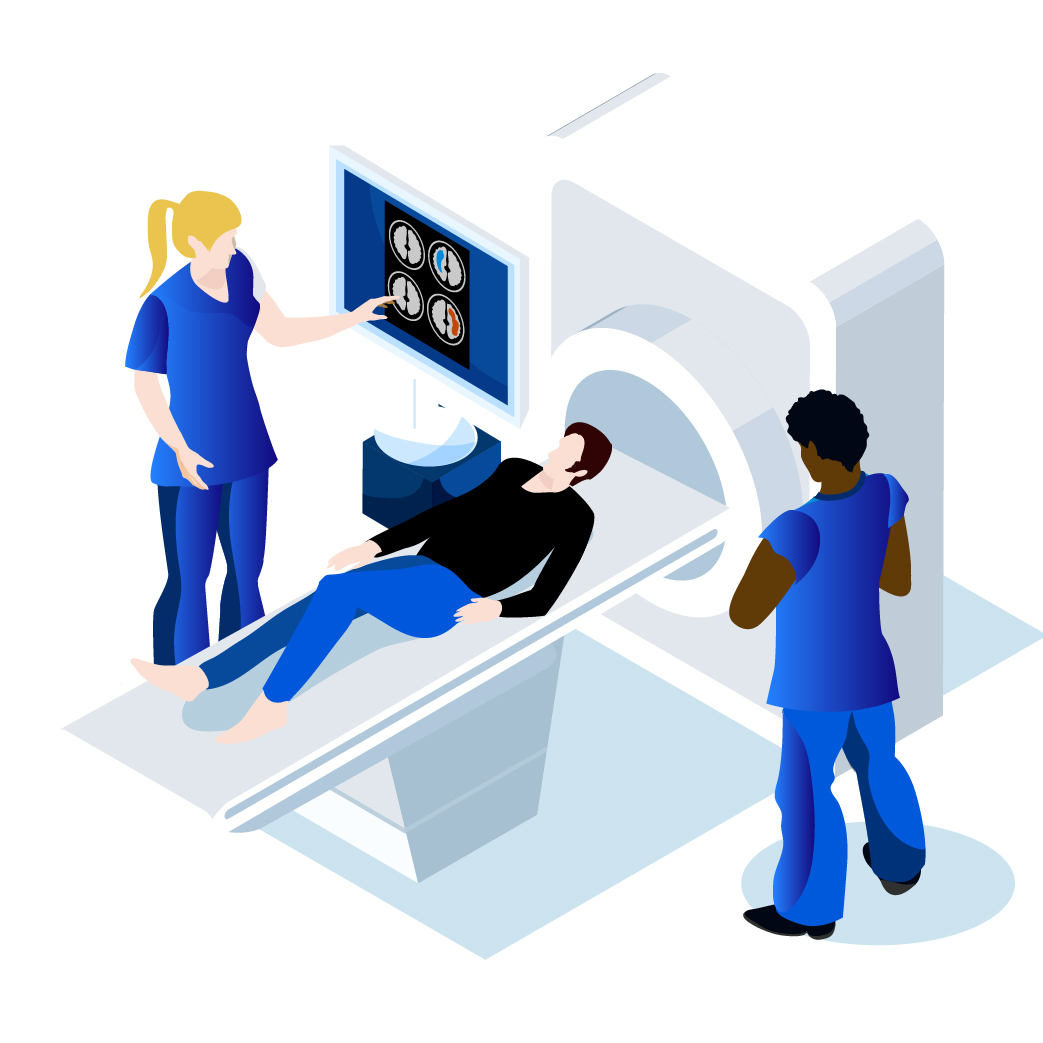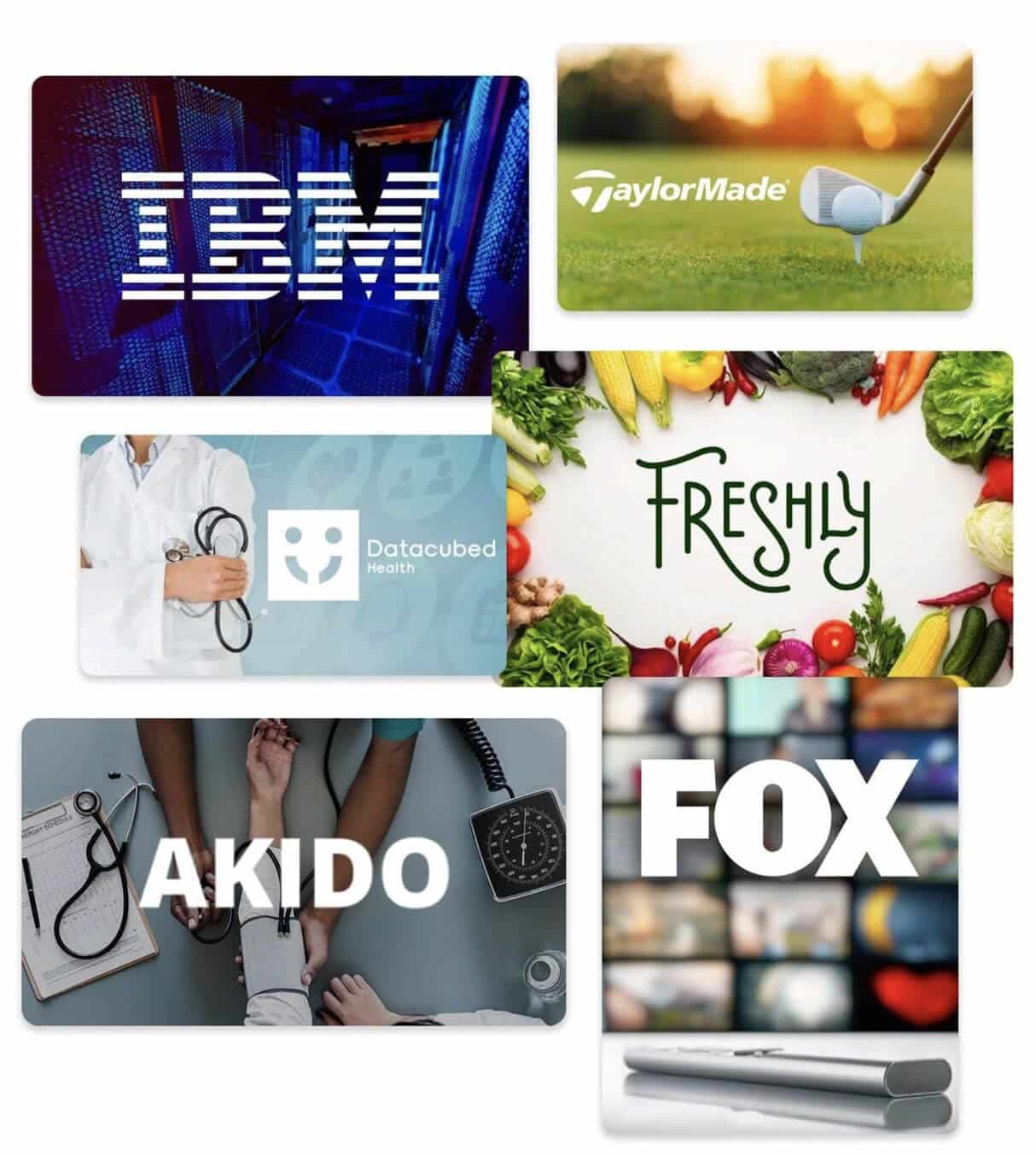Technology in Healthcare
Revolutionizing Healthcare through Technological Advancements: Enhancing Patient Care and Empowering Medical Professionals

Everything you need to know about
Technology in Healthcare
Technology has revolutionized every aspect of our lives, including the healthcare industry. Technological advancement has made healthcare more efficient, accurate, and accessible. Today, doctors and healthcare professionals use technology to diagnose and treat diseases, monitor patient health, and enhance patient outcomes. In this article, we will discuss how technology is transforming healthcare and the benefits it provides.
Electronic Health Records
Electronic Health Records (EHRs) have transformed how healthcare providers store and access patient data. EHRs are digital versions of patients’ medical records containing their medical history, allergies, medications, and other important information.
EHRs allow healthcare providers to access patients’ medical records from any location, enabling better collaboration among healthcare professionals. They also allow healthcare providers to identify potential health risks and prevent future medical problems.
EHRs also provide significant benefits to patients. They allow patients to access their medical records online, enabling them to take charge of their healthcare. Patients can view their test results, prescriptions, and other medical information, which can help them make informed decisions about their health. EHRs also provide patients with a complete and accurate medical history, which can be critical in emergencies.
Our Executive Team

Common Industries we provide Technology in Healthcare Services:
Healthcare & Life Sciences
SaaS & Information Services
Manufacturing
Financial Services & FinTech
Retail & E-Commerce
Insurance
Logistics & Automotive
Travel & Hospitality
Technology in Healthcare
Telemedicine
Telemedicine has been a game-changer for the healthcare industry, especially during the COVID-19 pandemic. Telemedicine allows healthcare providers to diagnose and treat patients remotely using video conferencing, mobile apps, and other technologies. Telemedicine has made healthcare more accessible to patients in remote areas or those with mobility issues (1).
“You can get a variety of specialized care through telehealth. Telehealth is especially helpful to monitor and improve ongoing health issues, such as medication changes or chronic health conditions.”
– Telehealth HHS
Telemedicine also offers significant cost savings to patients. Patients can save money on transportation costs and avoid time-consuming visits to the doctor’s office. Moreover, telemedicine has reduced the burden on healthcare providers, enabling them to treat more patients efficiently.
Artificial Intelligence
Artificial intelligence (AI) transforms how healthcare providers diagnose and treat diseases. AI technology can analyze vast amounts of medical data, enabling healthcare providers to identify potential health risks and develop personalized treatment plans. AI-powered tools can also help doctors and healthcare providers make better decisions, reducing medical errors and improving patient outcomes.
AI is also being used to develop new medical treatments and drugs. Researchers use AI algorithms to analyze large datasets to identify potential drug targets and develop new medicines to treat diseases more effectively. AI-powered medical devices are also being developed to diagnose and monitor conditions, including cancer, heart disease, and diabetes.


Common Industries we provide Technology in Healthcare Services:

COST-EFFECTIVE DEVELOPERS
Our Software Developers and Engineers cost
on average $45 to $65 per hour

HIGHEST QUALITY DEDICATED TEAMS
Access to the TOP 1% of Nearshore Software Development resources in Latin America

TIME SENSITIVE DEVELOPMENT
Sonatafy’s Nearshore Talent Acquisition can place qualified Software Engineering teams in as quick as 2 weeks
Wearable Technology
in Healthcare
Wearable technology, such as fitness trackers, smartwatches, and health monitors, transforms how patients manage their health. Wearable devices can track patients’ heart rate, blood pressure, and other vital signs, enabling them to monitor their health in real time. Wearable devices also provide patients with actionable insights to help them make informed decisions about their health.
Wearable devices also offer significant benefits to healthcare providers. They can help healthcare providers monitor patients remotely, enabling them to provide personalized care and identify potential health risks. Wearable devices can reduce healthcare costs by preventing hospitalizations and emergency room visits (2).
“Wearable technology has a variety of use cases which is growing as the technology is developed and the market expands. Wearables are popular in consumer electronics, most commonly in the form factors of smartwatches, smart rings, and implants.”
– Wikipedia
Robotics
Robotic technology is transforming the way surgeries are performed. Robotic surgery is minimally invasive and offers several benefits over traditional surgery, including faster recovery times, less pain, and fewer complications. Robotic surgery also allows surgeons to perform complex procedures with greater precision, reducing the risk of surgical errors.
Robotic technology is also being used to assist patients with mobility issues. Robotic exoskeletons can help patients with paralysis or spinal cord injuries to walk again. Robotic devices can also assist patients with physical therapy, enabling them to regain strength and mobility.

Interested In Working With Sonatafy?
Technology is used
in Healthcare in various ways, including:
- Diagnostic Tools: Technology has enabled the development of diagnostic tools that allow healthcare providers to diagnose diseases more accurately and quickly. Medical imaging technologies, such as X-rays, CT scans, and MRI scans, provide doctors with detailed images of the inside of the body, enabling them to identify potential health risks and diagnose diseases.
- Electronic Health Records (EHRs): EHRs are digital versions of patients’ medical records, which allow healthcare providers to store and access patient data more efficiently. EHRs enable healthcare providers to access patient information from any location, enabling better collaboration among healthcare professionals and improving patient outcomes.
- Telemedicine: Telemedicine allows healthcare providers to diagnose and treat patients remotely using video conferencing, mobile apps, and other technologies. Telemedicine has made healthcare more accessible to patients in remote areas or those with mobility issues. It has reduced the burden on healthcare providers, enabling them to treat more patients efficiently.
- Artificial Intelligence (AI): AI technology can analyze vast amounts of medical data, enabling healthcare providers to identify potential health risks and develop personalized treatment plans. AI-powered tools can also help doctors and healthcare providers make better decisions, reducing medical errors and improving patient outcomes.
- Wearable Technology: Wearable technology, such as fitness trackers, smartwatches, and health monitors, can track patients’ vital signs, enabling them to monitor their health in real-time. Wearable devices also provide patients with actionable insights to help them make informed decisions about their health.
- Robotic Technology: Robotic technology transforms surgeries, enabling surgeons to perform complex procedures with greater precision and reducing the risk of surgical errors. Robotic technology also assists patients with mobility issues, allowing them to walk again or regain strength and mobility.
- Electronic Prescriptions: Electronic prescriptions enable doctors to send pills directly to pharmacies, reducing the risk of errors and making it easier for patients to fill their prescriptions.
- Remote Patient Monitoring: Remote patient monitoring allows healthcare providers to monitor patients’ health remotely, providing personalized care and identifying potential health risks. Remote patient monitoring can reduce healthcare costs by preventing hospitalizations and emergency room visits.
Technology has revolutionized the healthcare industry, transforming how patients receive care and how healthcare providers deliver it. From EHRs to AI-powered medical devices, technology has made healthcare more efficient, accurate, and accessible. It has also improved patient outcomes, reduced healthcare costs, and enabled healthcare providers to diagnose and treat diseases more effectively.
As technology continues to evolve, it is expected to transform the healthcare industry further. The development of 5G networks and the Internet of Things (IoT) will likely lead to the development of new medical devices and treatments that can revolutionize how we manage our health. Virtual and augmented reality use in healthcare is also expected to increase, enabling healthcare providers to train medical students and treat patients remotely.
However, the adoption of new technologies in healthcare also raises several challenges. Healthcare providers must ensure that patient data is protected and secure and that technology is used ethically and responsibly. There is also a risk that technology could widen healthcare inequalities, with patients in remote areas or low-income households being left behind (3).
“Companies that operate in the healthcare industry will continue working to ensure patient data is kept secure and build trust with patients wary over the collection and use of their sensitive medical data, according to Howell.”
– Healthcare Dive
Technology has transformed the healthcare industry and its enormous potential to revolutionize patient care. From improving patient outcomes to reducing healthcare costs, technology is changing how we manage our health. However, ensuring that technology is used ethically and responsibly and that all patients can access its benefits is essential. As technology evolves, healthcare providers must embrace its potential and continue to innovate and improve patient care.
%
TOP NEARSHORE TALENT
%
ATTRITION RATE
%
ENGLISH PROFICIENCY
RESOURCES DEPLOYED
The best things you can learn from
Technology in Healthcare:
Technology has enabled healthcare providers to deliver better patient care, improve patient outcomes, and reduce healthcare costs. As technology continues to evolve, it is expected to transform the healthcare industry further, improving patient care and making healthcare more accessible to patients worldwide.
- Improving patient care and experiences: Technology has significantly improved patient care and experiences by providing real-time access to patient data, improving diagnostic accuracy, and enabling remote patient monitoring. Electronic health records (EHRs) allow healthcare providers to access patient data from any location, enabling better collaboration among healthcare professionals and improving patient outcomes. Telehealth technology also allows patients to receive care remotely, reducing the burden of travel and making healthcare more accessible to patients in remote areas.
- Real-time information exchange: Real-time information exchange is critical to delivering timely and accurate healthcare services. Technology enables healthcare providers to exchange information in real time, allowing them to make better-informed decisions about patient care. Real-time information exchange also reduces the risk of errors. It improves patient outcomes by providing healthcare providers access to up-to-date patient data.
- Flexibility for patients and clinicians: Technology allows patients and clinicians to access healthcare services from any location. Telehealth technology allows patients to receive care remotely, reducing the burden of travel and making healthcare more accessible to patients in remote areas. Mobile apps and wearable technology enable patients to monitor their health and communicate with healthcare providers anytime.
- AI technology in healthcare: AI technology is transforming the healthcare industry by enabling providers to analyze vast amounts of medical data, identify potential health risks, and develop personalized treatment plans. AI-powered tools can also help doctors and healthcare providers make better decisions, reducing medical errors and improving patient outcomes.
- Blockchain in healthcare: Blockchain technology provides a secure and decentralized way to store and share patient data, reducing the risk of data breaches and improving patient privacy. Blockchain technology also enables patients to own and control their medical data, allowing them to share it with healthcare providers and researchers as they see fit.
- Cloud computing: in healthcare enables healthcare providers to store and access patient data securely and efficiently, improving collaboration among healthcare professionals and reducing the risk of data breaches. Cloud computing also provides healthcare providers access to powerful computing resources, enabling them to analyze vast amounts of medical data and develop personalized treatment plans.
- Telehealth technology: Telehealth technology enables patients to receive care remotely, reducing the burden of travel and making healthcare more accessible to patients in remote areas. Telehealth technology also allows healthcare providers to monitor patients’ health remotely, providing personalized care and identifying potential health risks.
- Driving interoperability through technology: Interoperability is critical to delivering high-quality healthcare services. Technology enables healthcare providers to exchange data seamlessly, enabling better collaboration among healthcare professionals and improving patient outcomes.
How do we apply healthcare technology?
Healthcare technology can be used in various ways, including improving patient care and experiences, providing real-time access to patient data, enabling remote patient monitoring, and improving diagnostic accuracy. Healthcare technology can also reduce healthcare costs, enhance collaboration among healthcare professionals, and increase patient engagement and participation in their healthcare. With innovations and software development life cycle updates we will only see healthcare technology flourish, click for more info.
What is healthcare technology?
Healthcare technology refers to using technology to improve patient care, increase efficiency, and reduce healthcare costs. Healthcare technology includes many tools and technologies, including electronic health records (EHRs), telehealth technology, AI technology, blockchain technology, and cloud computing.
Benefits of health tech: Healthtech provides several benefits, including improving patient care and experiences, increasing efficiency, reducing healthcare costs, and enabling remote patient monitoring. Healthtech also gives patients greater control over their health and enables healthcare providers to make better-informed decisions about patient care.
Healthtech improves efficiency: Healthtech enables healthcare providers to access patient data more efficiently, reducing the risk of errors and improving patient outcomes. Healthtech also allows healthcare providers to collaborate more effectively, reducing the time and resources required to deliver high-quality healthcare services.
Healthtech promotes quality care: Healthtech enables healthcare providers to make better-informed decisions about patient care, reducing the risk of errors and improving patient outcomes. Healthtech also allows healthcare providers to monitor patients’ health remotely, providing personalized care and identifying potential health risks.
Examples of technology in healthcare:
There are numerous examples of technology in healthcare, including:
Administrative Healthtech: Administrative health tech includes tools and technologies that streamline administrative tasks, such as scheduling appointments, managing patient records, and billing.
Healthcare Technology for Surgery: Healthcare technology is also used to improve surgical outcomes, including robotic surgery, virtual reality, and 3D printing.
Drug Development: Technology accelerates drug development, including AI-powered drug discovery and clinical trials.
Healthtech in Fitness: Healthtech improves fitness and overall wellness, including wearable fitness trackers and mobile apps that track diet and exercise.
Diagnostics and Error Reduction: Technology, including AI-powered diagnostic tools and predictive analytics, is used to improve diagnostic accuracy and reduce the risk of errors will enable.
Technology in Healthcare Companies
Awards & Recognitions
Helping take our clients’ software development businesses to the next level has been quite an experience, and we are not slowing down any time soon. Providing a memorable experience and far surpassing our customers’ software development and solutions goals is one of the most rewarding experiences of our company to date.
We’re ready to start helping your company grow with our industry-leading custom software development solution, are you?

Earning Trust & Loyalty for our Software Development Services
Our executive team proudly provides complete custom healthcare software development solutions from deployment to completion.
Our client-centric software development solutions have made us the healthcare app development provider of choice for clients such as Akido Labs, Datacubed Health, Sema Technologies, and Semantic AI, among others. With thousands of software development engineers deployed to date, clients love our personalized high-touch approach.
With high-quality delivery web development services and strong customer support and management, we give you the ability to focus on business decisions rather than software development issues.
Sonatafy Technology services can dramatically
improve the Technology in Healthcare Services.
Our Software Development Clients Have Spoken.

“We increased our productivity and quality by extending our team with Sonatafy resources. They are part of our ‘family’. Their passion, dedication, experience, and wisdom has been nothing short of impressive.”

“We have been using Sonatafy for software team augmentation. Their vetting process is extremely through and has saved us a huge amount of time. All of the candidates presented have been outstanding and have fit into our team perfectly.”

“The Sonatafy team consists of members who are dedicated, personable, and attentive. They will search tirelessly to match the right talent to meet your skills and budgetary requirements. Regardless of your situation, you cannot go wrong with Sonatafy.”

“The Sonatafy team has continually impressed us with the quality of their engineers — we have found excellent engineering leaders in their contractors who have helped tremendously. They really are an integral part of our team, and we’re very thankful for Sonatafy’s professional leadership in this space. I heartily recommend them to augment anyone’s teams or projects.”

“At IMAIGE Analytics, we are driven by purpose and outcomes. Sonatafy has been the exact type of partner we need to help us deliver on both. They’ve found solutions specific to our purpose and needs, their resources have contributed like long time team members from day one and they seem dedicated to progressively better outcomes from the start. Thanks to the team and to Steve for taking the time to make our business better!”

“The entire team at Sonatafy greatly surpassed our expectations. We require very specific skill sets and the team did an incredible job of screening and selecting top – notch candidates. Sonatafy’s attention to detail, professionalism, open communication, and collaboration with us ensured that we found highly skilled talent that fit seamlessly into our company’s culture. I can’t recommend them strongly enough.”

“Sonatafy makes it easy to find great and professional talent, with their help we have been able to solidify our team. Their process and communication is a refresher and a weight off our shoulders.”

I’ve used Sonatafy Technologies for the last 5 + years at several of my companies both small and large, in a staff augmentation capacity. I have been consistently impressed with the high – quality of technical skills as well as the team member’s high level of engagement and dedication to my projects. I’ve always considered my dedicated Sonatafy resources as members of my team , and their contributions and performance has been excellent. The combination of high performance and afford ability has been an outstanding benefit , and I would highly recommend using Sonatafy Technologies as your near shore technology partner.
The uses and applications
in Healthcare Technology:
Technology is transforming the healthcare industry by improving patient care and experiences, enabling real-time information exchange, promoting flexibility for patients and clinicians, and driving interoperability. AI technology, blockchain, cloud computing, and telehealth technology are just a few examples of the numerous tools and technologies transforming healthcare. By leveraging the power of health tech, healthcare providers can provide high-quality care, reduce healthcare costs, and improve patient outcomes.
What is a technology used for in healthcare?
Technology improves patient care and experiences, enables real-time information exchange, promotes flexibility for patients and clinicians, and drives interoperability. Some examples of technology used in healthcare include AI-powered diagnostic tools, electronic health records, telehealth technology, wearable fitness trackers, and mobile apps that track diet and exercise (4).
“In medicine and healthcare, digital technology could help transform unsustainable healthcare systems into sustainable ones, equalize the relationship between medical professionals and patients, provide cheaper, faster and more effective solutions for diseases…”
– Medical Futurist
What are the 3 benefits of technology in healthcare?
Three benefits of technology in healthcare include:
Improved patient outcomes: Healthtech enables healthcare providers to make better-informed decisions about patient care, reducing the risk of errors and improving patient outcomes.
Increased efficiency: Healthtech streamlines administrative tasks, reducing the administrative burden on healthcare providers and improving operational efficiency.
Reduced healthcare costs: Healthtech minimizes the need for in-person visits, allowing patients to receive care remotely and reducing healthcare costs.
What technology will have the most significant impact on healthcare?
It is difficult to predict which technology will significantly impact healthcare, as different technologies have different strengths and applications (https://sonatafy.com/healthcare-app-development-the-absolute-guide/). However, some technologies that substantially impact healthcare include AI-powered diagnostic tools, telehealth technology, and electronic health records.
What are three technologies in healthcare?
Three technologies in healthcare include:
AI-powered diagnostic tools: AI-powered diagnostic tools analyze large amounts of patient data to improve diagnostic accuracy and reduce the risk of errors.
Telehealth technology enables patients to receive care remotely, reducing the need for in-person visits and improving access to care.
Electronic health records: Electronic health records allow healthcare providers to access and share patient data in real time, improving patient care and experiences.
Technology used in hospitals: Technology used in hospitals encompasses many tools and equipment that help healthcare providers deliver high-quality patient care. Some examples of technology used in hospitals include electronic health records (EHRs), telehealth technology, patient monitoring systems, surgical robots, and medical imaging systems.
Electronic health records allow healthcare providers to access and share patient data in real time, improving patient care and experiences. Telehealth technology enables patients to receive care remotely, reducing the need for in-person visits and improving access to care. Patient monitoring systems allow healthcare providers to monitor patients’ health remotely and identify potential health risks. Surgical robots enable surgeons to perform minimally invasive surgeries with greater precision, reducing the risk of complications. Medical imaging systems like X-rays and CT scans help healthcare providers diagnose and treat various medical conditions.
Health technology products: Health technology products refer to a wide range of tools and technologies that help individuals manage their health and wellness. Some examples of health technology products include wearable fitness trackers, mobile apps that track diet and exercise, and at-home diagnostic kits.
Wearable fitness trackers help individuals monitor their physical activity levels, sleep patterns, and other health metrics. Mobile apps that track diet and exercise enable individuals to set fitness goals, track their progress, and receive personalized recommendations. At-home diagnostic kits would allow individuals to test for various health conditions from their homes, reducing the need for in-person visits to healthcare providers.
Importance of technology in healthcare essay: Technology plays a critical role in improving the quality of care, reducing healthcare costs, and improving patient outcomes. Electronic health records enable healthcare providers to access and share patient data in real time, reducing the risk of errors and improving patient care and experiences. Telehealth technology allows patients to receive care remotely, reducing the need for in-person visits and improving access to care. AI-powered diagnostic tools enhance diagnostic accuracy and reduce the risk of errors. At the same time, robotic surgery enables surgeons to perform minimally invasive surgeries with greater precision.
The importance of technology in healthcare cannot be overstated, as it can potentially transform the healthcare industry by improving patient care and experiences, reducing healthcare costs, and improving patient outcomes.
Health technology courses:
Health technology courses are designed to teach individuals about the latest tools and technologies used in healthcare. These courses include electronic health records, telehealth technology, AI-powered diagnostic tools, and medical imaging systems.
Health technology courses are available at universities, colleges, and online learning platforms. They are designed for individuals interested in pursuing careers in healthcare and healthcare professionals who want to stay current on the latest tools and technologies used in their field.
Impact of Technology on the healthcare industry
The effect of technology in the healthcare industry has been significant, as it has transformed how healthcare is delivered and managed. Technology has enabled healthcare providers to improve patient care and experiences, reduce healthcare costs, and improve patient outcomes.
Electronic health records have enabled healthcare providers to access and share patient data in real time, reducing the risk of errors and improving patient care and experiences. Telehealth technology has allowed patients to receive care remotely, reducing the need for in-person visits and improving access to care. AI-powered diagnostic tools have improved diagnostic accuracy and reduced the risk of errors. At the same time, robotic surgery has enabled surgeons to perform minimally invasive surgeries with greater precision.
Overall, the impact of technology in the healthcare industry has been transformative, and it has the potential to continue to transform the industry in the years to come.
References:
- You can get a variety of specialized care through telehealth. Telehealth is especially helpful to monitor and improve ongoing health issues, such as medication changes or chronic health conditions. – Telehealth HHS Quote
https://telehealth.hhs.gov/patients/understanding-telehealth - Wearable technology has a variety of use cases which is growing as the technology is developed and the market expands. Wearables are popular in consumer electronics, most commonly in the form factors of smartwatches, smart rings, and implants. – Wikipedia Quote
https://en.wikipedia.org/wiki/Wearable_technology - Companies that operate in the healthcare industry will continue working to ensure patient data is kept secure and build trust with patients wary over the collection and use of their sensitive medical data, according to Howell. – Healthcare Dive Quote
https://www.healthcaredive.com/news/digital-health-predictions-2023-telehealth-ai-privacy-cybersecurity/638555/ - In medicine and healthcare, digital technology could help transform unsustainable healthcare systems into sustainable ones, equalize the relationship between medical professionals and patients, provide cheaper, faster and more effective solutions for diseases – Medical Futurist Quote
https://medicalfuturist.com/ten-ways-technology-changing-healthcare/#









